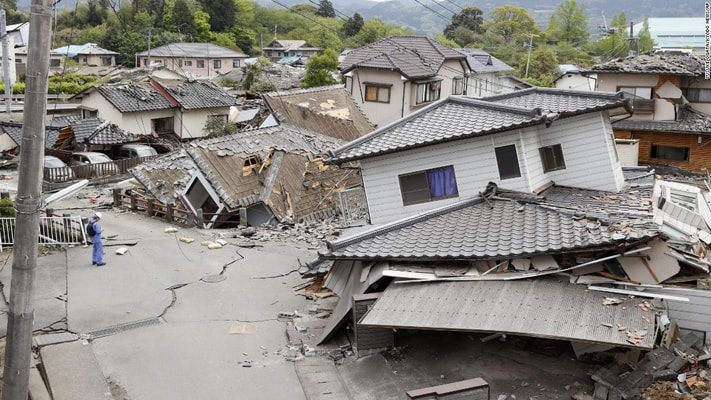
I don’t live in an earthquake-prone area of the world, but I did live through an earthquake when I was in university. It was nothing. But that didn’t mean it didn’t scare me a little. Why did it scare me? Well, its hard to explain but I thought about how it could have been worse. And what would it have been like had it been worse? I was living in a 10 story apartment building at the time, and the whole idea of structural engineering was foreign to me. Would my apartment have been damaged? Would I have made it out? Yes, that sounds like a worst case scenario, but there are a lot of people who live in areas where they have to ask these kinds of questions.
The bad news is that there predictions of some pretty bad earthquakes in 2018. The good news is that this might be mostly sensationalism. According to science, there is no way to predict an individual earthquake. Earthquakes occur when potential energy stored along cracks in the planet’s crust gets released, sending seismic waves through the Earth. Since scientists know where those cracks exist, and how they are likely to convulse, they can develop forecasts of the general threat for an area. But the forces that contribute to this energy buildup and trigger its release are global and complex, and we still cannot sort out exactly how it might unfold.

By examining the historic earthquake record and monitoring those fluctuations, scientists might be able to forecast years when earthquakes are more likely to occur. Hence what we are seeing as a prediction for 2018. But this forecast is merely just that. It’s certainly not carved in stone. Further, the data needed to give this has a forecast hasn’t been demonstrated or confirmed by any studies.
Earthquake forecasting has seen some pretty far-fetched claims over the years. People have even tried to predict tremors based on the behavior of animals, gas emissions from rocks, low-frequency electric signals rippling through the Earth. But none have really lead to any success. That’s why this idea is a bit scary. That doesn’t mean that scientists should stop attempting to predict these things. Because a correct prediction can mean the difference between life and death for a lot of people. The stakes are far too high not to at least attempt.
Earthquakes with a magnitude of 7.0 or more all seemed to have a cluster in the historical record. Every three decades or so, the planet seems to experience a bunch of them – as many as 20 per year. Instead of the typical 8-10. It was as if something was causing these earthquakes to synchronize, even though they were happening in spots scattered around the globe. Which is to suggest that these earthquakes aren’t happening at random. This isn’t really a glamorous finding. But there’s a possibility that it will help scientists predict more of these events.
This doesn’t mean that 2018 will actually be that bad in terms of earthquakes. The earthquakes that are being analyzed are happening in areas that are already earthquake-prone – Japan, New Zealand, and the west coast of the United States. For people who live in these regions, there is always a risk and it’s always good to be prepared. If this kind of pattern were the only influencing factor, scientists would have figured this out a long time ago. There are other factors in play here, but they aren’t yet known. That being said, 2018 may or may not turn out to be one with a lot of earthquakes. Only time will tell.
